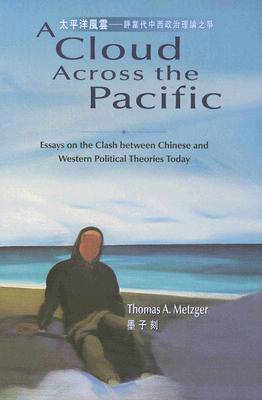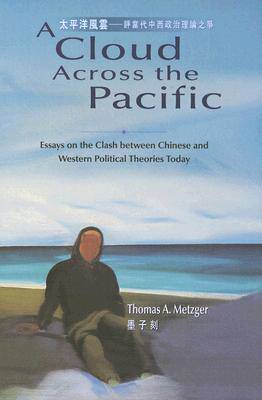
- Afhalen na 1 uur in een winkel met voorraad
- Gratis thuislevering in België vanaf € 30
- Ruim aanbod met 7 miljoen producten
- Afhalen na 1 uur in een winkel met voorraad
- Gratis thuislevering in België vanaf € 30
- Ruim aanbod met 7 miljoen producten
Zoeken
A Cloud Across the Pacific
Essays on the Clash Between Chinese and Western Political Theories Today
Thomas Metzger
Hardcover | Engels
€ 75,95
+ 151 punten
Omschrijving
This book uncovers the basic contradictions between contemporary China's complex ideological marketplace and Western liberalism. It describes and puts into critical context three versions of Western liberalism (those of F. A. Hayek, John Rawls, and John Dunn), three versions of Chinese liberalism (those of Yang Kuo-shu, Li Qiang, and Ambrose Y.C. King), two versions of modern Confucian humanism (those of T'ang Ch, n-i, and Henry K.H. Woo), and various versions of Chinese Marxism, including Kao Li-k'o's in the early 1990s and some of the recent New Left writings. It shows that all these Chinese political theories, not only Chinese Marxism, depend on a number of premises at odds with Western liberalism, especially epistemological optimism and an extravagantly optimistic concept of political practicability. It also argues that not only these Chinese theories but also Western liberalism have failed to offer adequate normative guidelines for the improvement of political life. This study combines a deep understanding of the history of Chinese thought with a strong grasp of modern philosophical trends and an innovative methodology for the description and criticism of political theories. It will be useful to students of modern Chinese intellectual history, of political philosophy, of political culture, of the comparative study of cultures, and of U.S.-Chinese relations.
Specificaties
Betrokkenen
- Auteur(s):
- Uitgeverij:
Inhoud
- Aantal bladzijden:
- 844
- Taal:
- Engels
Eigenschappen
- Productcode (EAN):
- 9789629961220
- Verschijningsdatum:
- 25/01/2006
- Uitvoering:
- Hardcover
- Formaat:
- Genaaid
- Afmetingen:
- 164 mm x 237 mm
- Gewicht:
- 1369 g

Alleen bij Standaard Boekhandel
+ 151 punten op je klantenkaart van Standaard Boekhandel
Beoordelingen
We publiceren alleen reviews die voldoen aan de voorwaarden voor reviews. Bekijk onze voorwaarden voor reviews.











